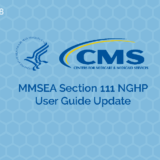On May 12, 2021, the Court of Appeals of Iowa published its opinion number 20-1250 in Forbes v. Benton County Agricultural Society and reminded everyone that in order to avoid surprises that lead to bad settlement results, plaintiffs in liability cases or employers in Workers’ Compensation cases, should always perform a lien investigation into the existence of any lien holders, entities, or plans that could assert a claim for reimbursement of paid claim charges (for this article, all simply referred to as liens). The next steps upon identifying any such liens would be to follow up with lien resolution audit, analysis, and negotiation. While the negotiation of the lien is often finalized after settlement, it is a form of malpractice for an attorney to move to settlement without first inquiring as to whether liens exist.
In August of 2017, Larry Forbes sustained an injury while on the premises of the Benton County Iowa fairgrounds, and hired an attorney to file a negligence action. After initial discovery, counsel for the Benton County Agricultural Society (Ag. Society), made an offer to Forbes’s counsel to settle for $10,000.
The letter referenced TRICARE but not Medicare and stated: “Based on information you have provided to date, Mr. Forbes had an excellent recovery, and his actual medical bills totaled $2,732, for which TRICARE apparently had a subrogation interest.” Burris added: “There is no indication that Mr. Forbes had to pay anything out-of-pocket, or that the medical providers are actually charging anything beyond the $2,732 paid.”
After negotiating, Forbes agreed to settle his suit with the Ag. Society for $12,500. In return, Forbes would dismiss the suit with prejudice. Counsel for the Ag. Society then informed Forbes’ counsel that if Forbes was Medicare eligible, her client would require “final CMS letter, showing the amount owed, if any, in reimbursement to Medicare.” However, after reaching the agreement, Forbes’ attorney learned that Medicare was pursuing a Medicare lien in the amount of $25,482 for reimbursement of conditional payments it made toward Forbes injury related medical expenses. Forbes’ attorney attempted to renegotiate the settlement once the existing Medicare conditional payments came to light. However, the Ag. Society pushed back, insisting Forbes accepted the agreed upon terms of the settlement and was aware of his obligations to Medicare. The Ag. Society moved to enforce the settlement by filing a motion for summary judgment.
When the case went to court, Forbes argued the agreement was unenforceable and claimed there was a “mutual mistake” because the parties failed to reach a “meeting of the minds.” The Iowa District Court for Benton County disagreed with Forbes and ruled in favor of the Ag. Society granting it summary judgment, based on its position that the settlement contract was enforceable. The Court of Appeals of Iowa affirmed the District Court’s ruling, reaching its affirmation under the theory that settlement agreements are essentially contracts and because the District Court properly applied contract law. Furthermore, the Court of Appeals confirmed that the lower court record showed a “meeting of the minds,” and that Forbes therefore, bore the risk of the mistake.
The Court of Appeals provided a detailed analysis on how a party may be considered to bear the risk of a mistake such as when:
“(a) the risk is allocated to him by agreement of the parties, or
(b) he is aware, at the time the contract is made, that he has only limited knowledge with respect to the facts to which the mistake relates but treats his limited knowledge as sufficient, or
(c) the risk is allocated to him by the court on the ground that it is reasonable in the circumstances to do so.”
The court decided that Forbes bears the risk of mistake in two of these exceptions:
“The first of those two exceptions is called “conscious ignorance.” See id. cmt. c. Under that exception, even if Forbes did not agree to bear the risk of mistake, he was aware when he agreed to the settlement that he had limited knowledge about potential Medicare payments. And despite that uncertainty, he “undertook to perform” the bargain. See id. In doing so, he assumed the risk of the mistake. See id. We agree with the district court that Forbes had exclusive access to his medical records and the ability to investigate whether Medicare would seek a recovery claim.
On the second exception, even if Forbes were not consciously ignorant about the possibility of a Medicare recovery claim, the district court was still reasonable in assigning the risk of mistake to him. See Pathology Consultants v. Gratton, 343 N.W.2d 428, 438 (Iowa 1984); see Restatement (Second) of Contracts § 154 cmt. a. As the court noted, Forbes’s fall occurred nearly two years before he sued. In that time, he had the opportunity and the burden to inquire thoroughly into the payment of his medical bills. It made sense for the court to allocate the risk of any mistake to Forbes.”
The full opinion and summary of the case can be read here: https://www.iowacourts.gov/courtcases/12533/embed/CourtAppealsOpinion.
Takeaways
Lien Investigation should be addressed during the pendency of any liability claims to determine who is paying for the injured party to recover from their injury and whether they will be asserting any subrogation/reimbursement right lien. This is especially important for those who are eligible/enrolled in any type of government issued medical insurance plan such as Medicare, Medicaid, VA/TRICARE/CHAMPVA, or who works/worked for a government entity (Such as FELA or FEHBA), or whose health plan is governed by federal law (such as an ERISA plan).
Patience is a virtue, especially in Lien Resolution and Lien Investigation. CMS’ guidelines allow for up to a 45-day response per inquiry. VA/TRICARE/CHAMPVA often take longer. Parties should take this into consideration and be proactive and inquire as to liens early in the case, so that if a settlement opportunity arises, they are able to have an accurate picture of all outstanding liens at the right time. Otherwise, they may be settling prematurely and as Mr. Forbes learned, at their peril.
Neglecting to address liens at the start of settlement is taking an unnecessary risk. Working with an experienced lien resolution group will often produce faster response times and outstanding resolution results. This is due in part to familiarity with the various lien processes, having lien holder contacts on file, use of electronic portals and secure email systems of recovery agents, use of proprietary diagnosis review software. Knowing which remedies may be available when, and how to best use the facts of cases in favor of the injured party when applicable.
Medivest can help you navigate through the complexities of lien resolution while you work toward a desired settlement outcome. Call us to today to speak to one of our highly trained settlement consultants for a free lien case consultation. For more information about Medivest or to refer a case, please call 877.725.2467 | Monday – Friday 8 am to 5 pm EST.







